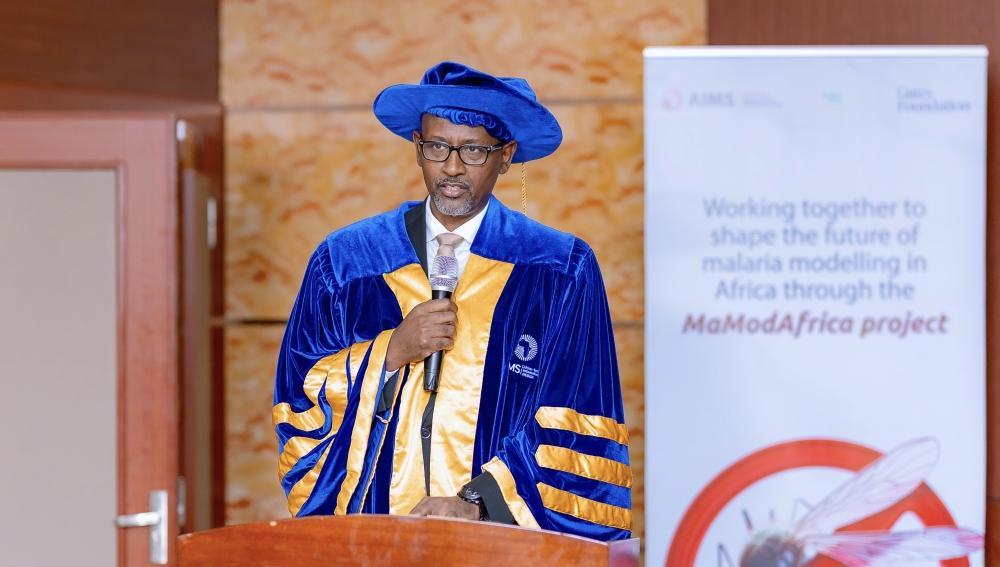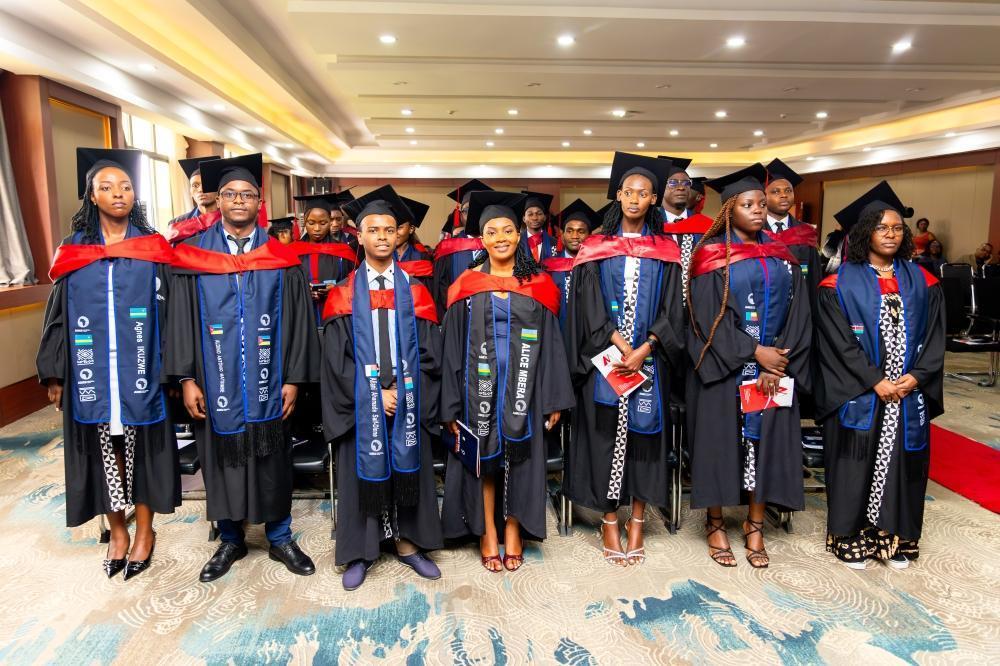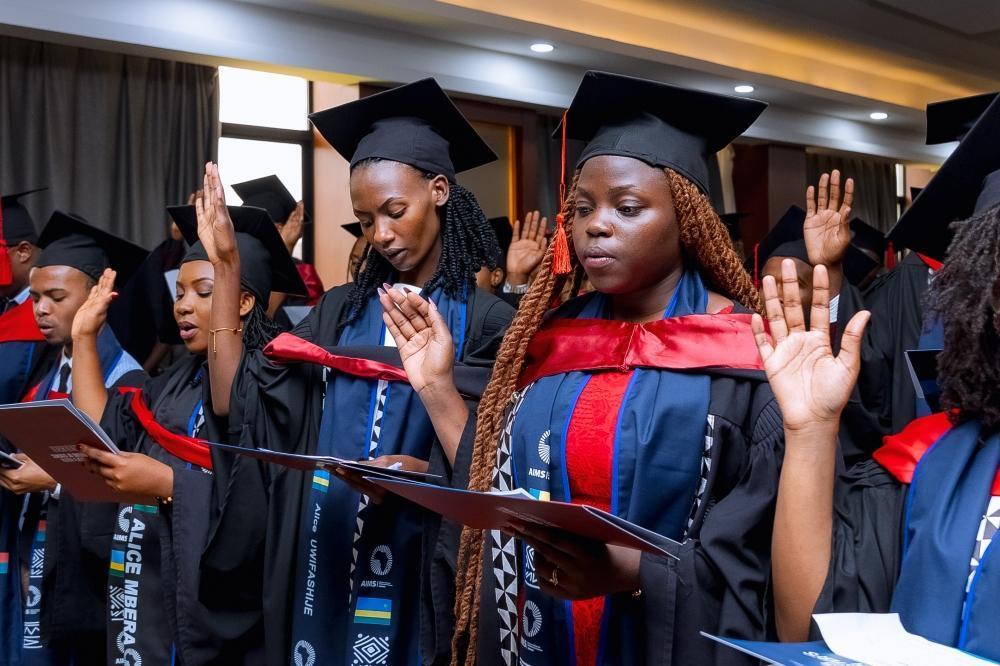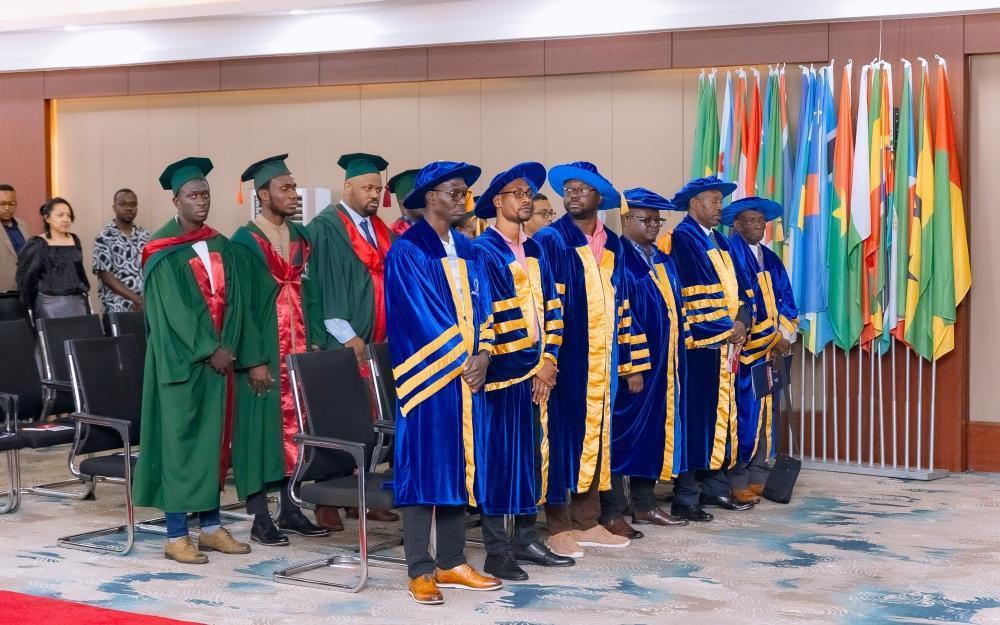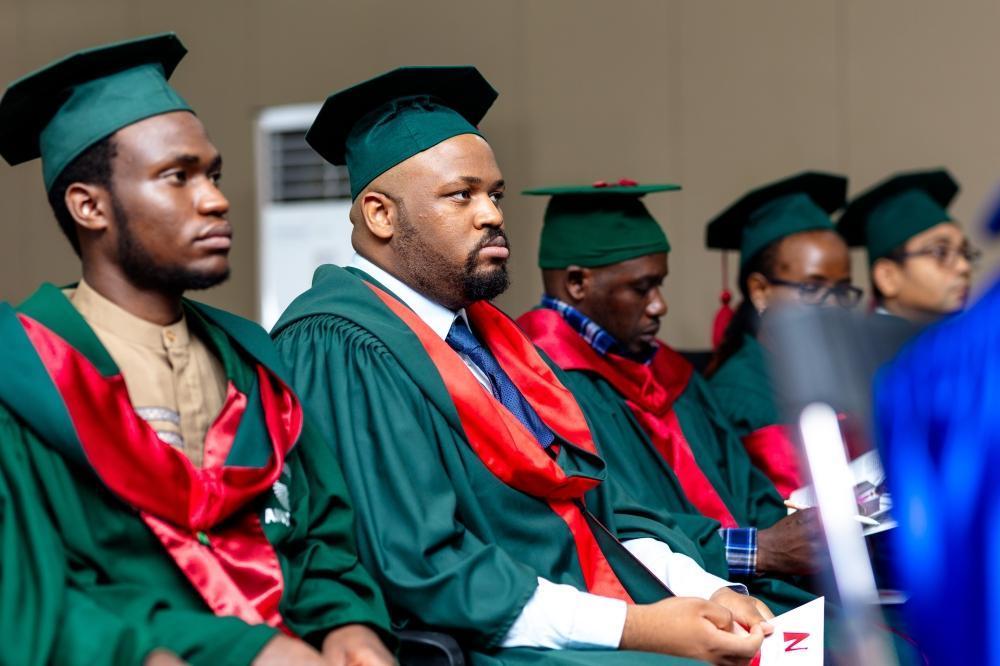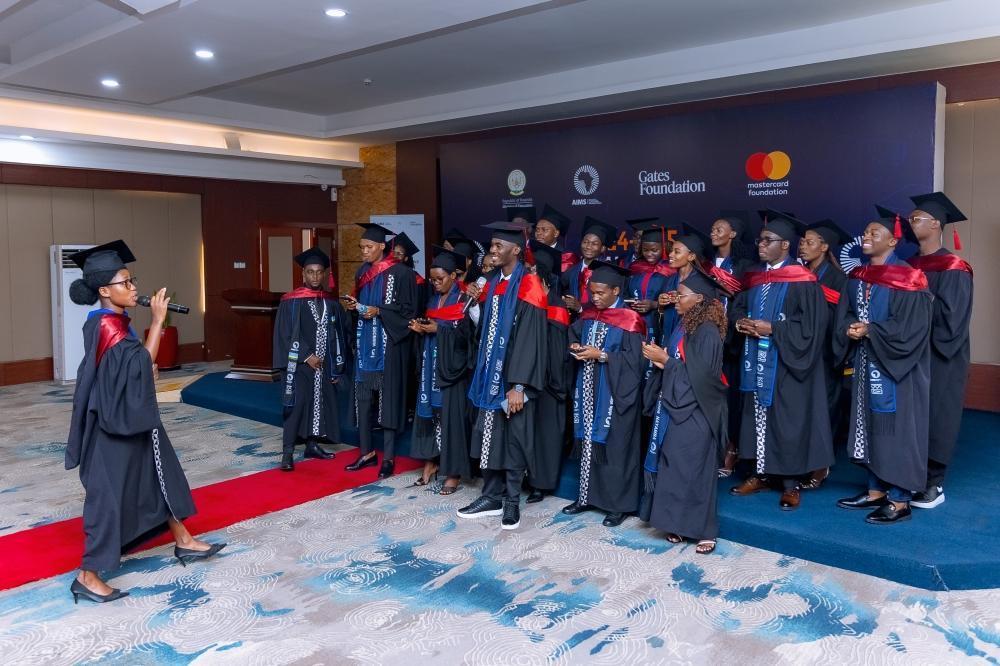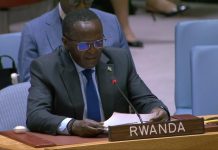Africa-Press – Rwanda. Minister of Education Joseph Nsengimana has urged young African scientists graduating from the African Institute for Mathematical Sciences (AIMS) Rwanda on October 10, to use their mathematical skills to drive innovation and solve Africa’s health challenges.
Thirty graduates from 12 African nations earned specialisation in Mathematical Epidemiology and Malaria Modelling, areas that are increasingly vital as the continent works to boost health security and combat infectious diseases.
Addressing the graduates, the minister described AIMS as “a cornerstone in Africa’s pursuit of knowledge-driven transformation,” adding that hosting the institute in Rwanda aligns with the country’s Vision 2050 and the African Union’s Agenda 2063.
“Through AIMS, we are investing in Africa’s greatest asset, its people,” Nsengimana said. “This partnership proves that Africa not only has the talent but also the capacity to train and produce world-class scientists who are deeply attuned to our realities and aspirations.”
The minister commended the graduates for their perseverance through 14 months of rigorous coursework, research, and field experience, calling them “a living example of the Africa we aspire to build.”
“Mathematics is not just about numbers,” Nsengimana reminded them. “It’s about solutions, and you are the proof of that.”
He added that mathematics, especially in health sciences, is no longer an abstract subject but a powerful tool for saving lives, informing policy, and building resilience against public health threats.
“The world is ready, indeed eager, for your creativity and leadership,” he told the graduates. “Whether you go into research, policy, or entrepreneurship, carry forward the curiosity, courage, and commitment that brought you this far.”
Muhammed Semakula, Permanent Secretary at the Ministry of Health, shared how mathematical modelling is transforming Rwanda’s health system.
He explained that by using data-driven analysis, Rwanda can now predict malaria outbreaks and target high-risk areas, 70 percent of all malaria cases occur in just 45 of the country’s 416 sectors.
“Without mathematics, our interventions would be blind,” Semakula said. “These models allow us to predict, prevent, and protect lives.”
He cited examples where mathematical tools helped trace the source of the Marburg virus and optimise testing strategies during Covid-19, calling mathematics “a survival tool” in modern public health.
Semakula also announced that two of the best-performing graduates will immediately join their fellowship programme at National Health Intelligence Centre, a government data hub that supports health policy and outbreak prediction.
For Faith Mungai from Kenya, one of the top graduates awarded the fellowship, joining the National Health Intelligence Centre is “a dream come true.”
“I’ve always wanted my work to directly impact lives,” she said. “To use mathematics not just to calculate, but to save.”
Her classmate Jean-Paul Ndayisaba from Rwanda, also selected for the fellowship, said he’s eager to continue modelling disease transmission.
“We’ve seen how powerful data can be in shaping decisions,” he said. “This is our chance to turn theory into real solutions for Africa.”
Supported by Mastercard Foundation and the Gates Foundation through the Africa Health Collaborative, AIMS Rwanda’s Cooperative Master’s Programme blends coursework with applied research and industry placements.
This year’s graduates join over 3,500 AIMS alumni across Africa who have pledged to use their mathematical skills not just for personal success, but to help transform the continent’s future.
For More News And Analysis About Rwanda Follow Africa-Press

